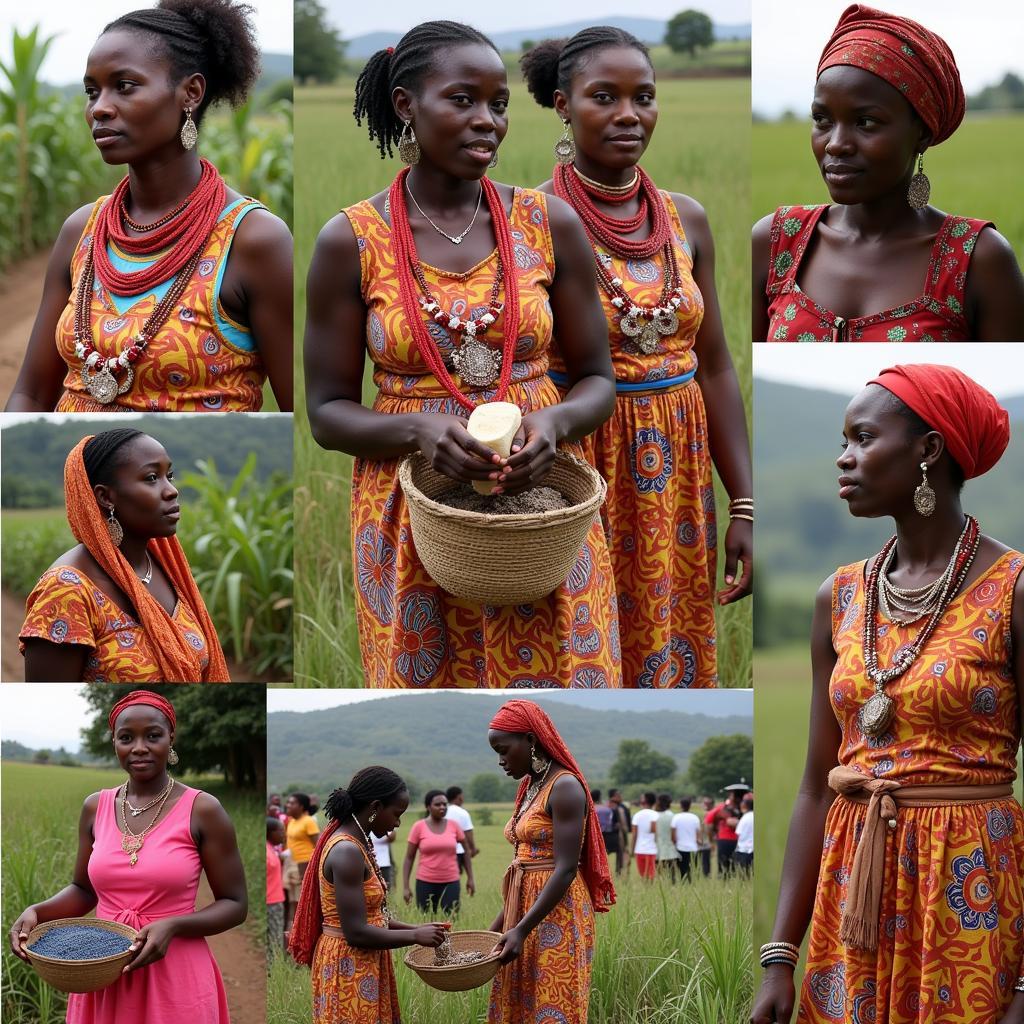African Animals Affected by Climate Change
Climate change is significantly impacting African animals, disrupting ecosystems and threatening biodiversity across the continent. From the scorching Sahara Desert to the lush Congo Basin rainforest, the effects are far-reaching and pose a serious threat to the survival of numerous species.
The diverse wildlife of Africa, a defining characteristic of the continent, is facing unprecedented challenges due to the escalating effects of climate change. Rising temperatures, altered rainfall patterns, and increased frequency of extreme weather events are disrupting established ecosystems and pushing many species to the brink. These changes are not merely abstract projections but are already having a tangible impact on the lives of African animals. The consequences are dire, ranging from habitat loss and food scarcity to increased disease prevalence and heightened human-wildlife conflict. Understanding the specific ways in which climate change is affecting these animals is crucial for developing effective conservation strategies and ensuring their survival for future generations. For example, changes in rainfall patterns can impact vegetation growth, affecting the food supply of herbivores, while rising temperatures can lead to heat stress, especially in large mammals like elephants. Learn more about the challenges faced by wildlife in the African Rift. african rift
The Impact of Drought on African Wildlife
Drought, exacerbated by climate change, is one of the most significant threats to African animals. Reduced rainfall and prolonged dry periods lead to water scarcity, forcing animals to travel further in search of dwindling resources. This can result in increased competition for limited water sources, leading to conflict and even death.
How Drought Affects Herbivores
Herbivores like zebras, giraffes, and elephants are particularly vulnerable to drought. The lack of vegetation severely restricts their food supply, leading to malnutrition and weakened immune systems, making them more susceptible to diseases.
What is the primary effect of drought on herbivores? Reduced food supply due to lack of vegetation.
The Impact on Predators
The impact of drought ripples through the food chain, affecting predators as well. As herbivore populations decline, predators like lions and cheetahs face increasing difficulty in finding prey, leading to starvation and reduced reproductive success.
Rising Temperatures and Heat Stress
Increasing temperatures are another major concern. Many African animals are adapted to specific temperature ranges, and even slight increases can lead to heat stress, particularly in larger mammals like elephants and rhinos. These animals rely on external sources of water and shade to regulate their body temperature, and the scarcity of these resources due to climate change poses a serious threat. Discover more about human interaction with forest life in african human forest life.
Vulnerable Species: Elephants and Rhinos
Elephants, for example, require vast quantities of water for drinking and bathing to stay cool. As water sources dry up, they face increased risk of dehydration and heatstroke. Rhinos, similarly, are vulnerable to heat stress and rely on mud wallows to regulate their body temperature.
How do rising temperatures affect elephants? Increased risk of dehydration and heatstroke due to the need for large quantities of water.
Changing Rainfall Patterns and Disease
Altered rainfall patterns can also impact disease transmission. Increased rainfall can create breeding grounds for disease vectors like mosquitoes, leading to outbreaks of diseases like malaria and Rift Valley fever, which can devastate wildlife populations. Conversely, reduced rainfall can concentrate pathogens in limited water sources, increasing the risk of infection for animals that congregate there. You can learn more about the African elephant’s habitat through this diorama: african elephant habitat diorama
Human-Wildlife Conflict
As climate change shrinks natural habitats and reduces resources, animals are increasingly forced to venture into human settlements in search of food and water. This leads to heightened human-wildlife conflict, resulting in crop raiding, livestock predation, and retaliatory killings of animals by humans. This conflict poses a significant threat to both wildlife and human communities. Watch insightful documentaries about this issue at african documentary videos.
Dr. Anika Olumide, a leading wildlife conservationist, emphasizes, “Climate change is not just an environmental issue; it’s a humanitarian crisis as well. The increasing human-wildlife conflict is a direct consequence of climate-induced habitat loss and resource scarcity, posing a threat to both wildlife and human livelihoods.”
Conclusion
Climate change is having a profound and devastating impact on African animals, threatening the delicate balance of the continent’s unique ecosystems. Addressing this crisis requires immediate and concerted action to mitigate climate change and implement effective conservation strategies. By understanding the specific challenges faced by African Animals Affected By Climate Change, we can work towards protecting these magnificent creatures and preserving the biodiversity of Africa for generations to come. Learn more about elephant culling in some African countries: african countries where elephant culling is permissible.
FAQ
- What are the main ways climate change affects African animals? Drought, rising temperatures, changing rainfall patterns, and increased human-wildlife conflict.
- How does drought impact herbivores? It reduces their food supply and weakens their immune systems.
- Why are elephants vulnerable to rising temperatures? They need large amounts of water to stay cool.
- How do altered rainfall patterns affect disease transmission? They can create breeding grounds for disease vectors or concentrate pathogens in limited water sources.
- What is a major consequence of habitat loss due to climate change? Increased human-wildlife conflict.
- How does climate change impact predators? It reduces their prey populations, leading to starvation.
- What is crucial for protecting African animals from climate change? Immediate and concerted action to mitigate climate change and implement effective conservation strategies.
Need help? Contact us 24/7: Phone: +255768904061, Email: [email protected] or visit our office in Mbarali DC Mawindi, Kangaga, Tanzania.

